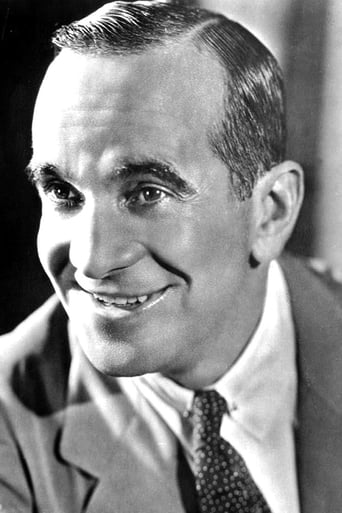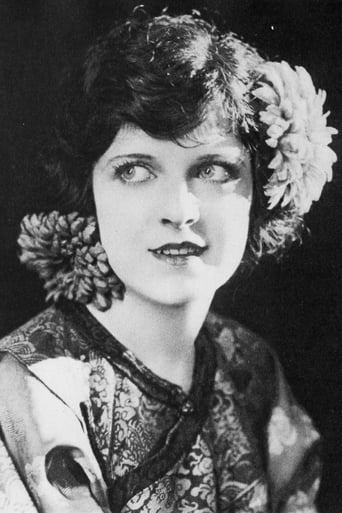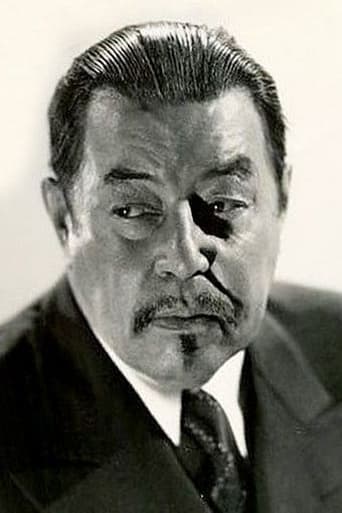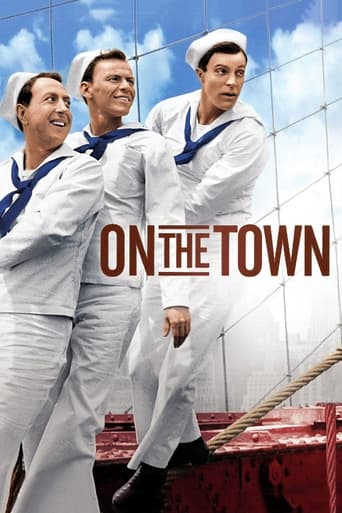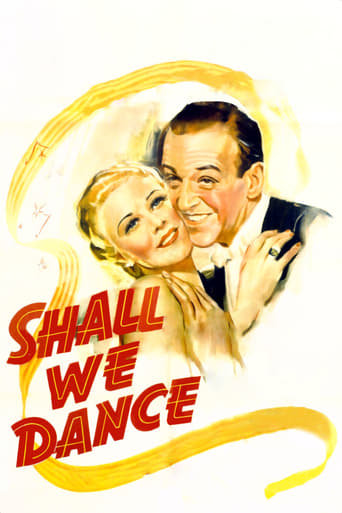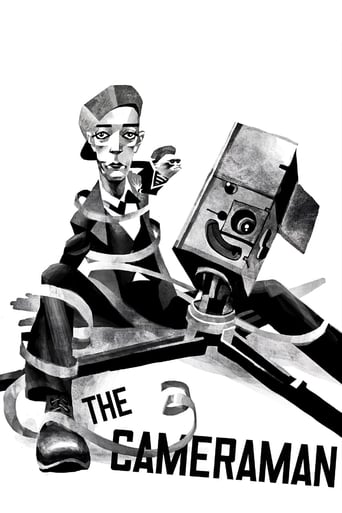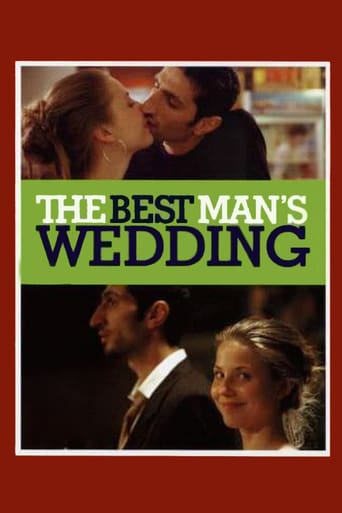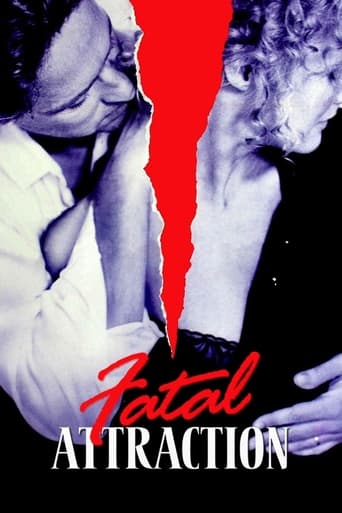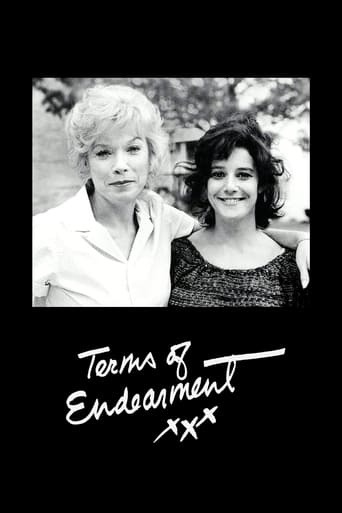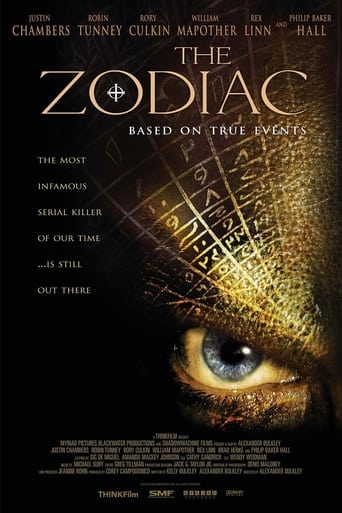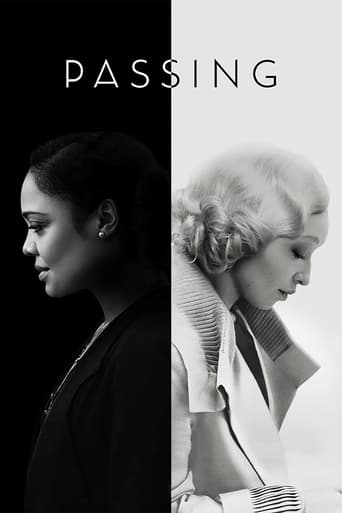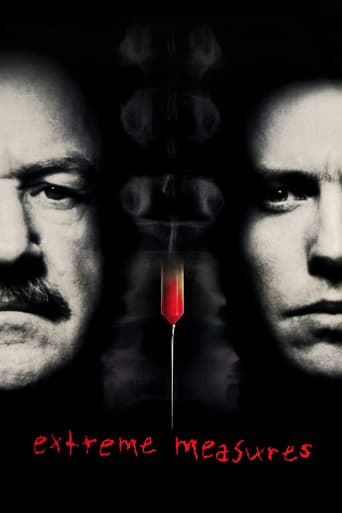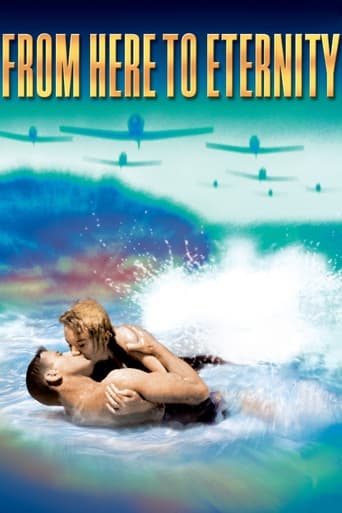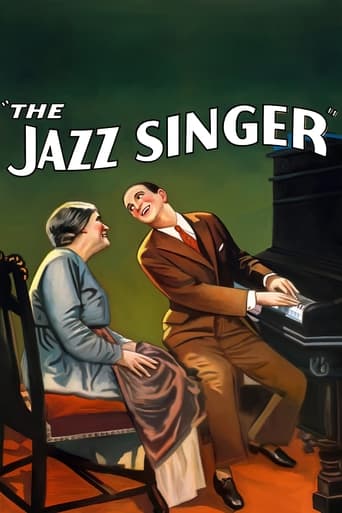
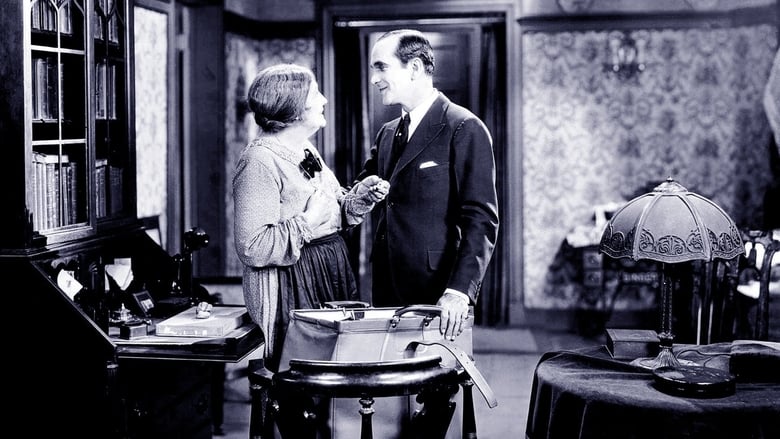
The Jazz Singer (1927)
A young Jewish man is torn between tradition and individuality when his old-fashioned family objects to his career as a jazz singer. This is the first full length feature film to use synchronized sound, and is the original film musical.
Watch Trailer
Cast


Similar titles
Reviews
Good movie, but best of all time? Hardly . . .
Fun premise, good actors, bad writing. This film seemed to have potential at the beginning but it quickly devolves into a trite action film. Ultimately it's very boring.
A movie that not only functions as a solid scarefest but a razor-sharp satire.
One of the worst ways to make a cult movie is to set out to make a cult movie.
"Isn't there anything that touches you, that warms you? Every man has a dream, what do you dream about?" That quote comes from my favorite moment of Stanley Kramer's "Inherit the Wind" the movie about the monkey trial ending with the atheist lawyer, played by Spencer Tracy, admitting off the record the power of faith. He wasn't against religion but the way religion could become an oppressive force while its quest for a spiritual meaning could generously provide the kind of harmony every man seeks. That's the idea of "The Jazz Singer", a film about two men who have their own religion, a rabbi who believes in the word of God and his son Jacob (Al Jolson) who believes he can only sing his truth by entertaining people. What they all have in common besides belonging to a prestigious generation of Cantors is the same 'tear' in the voice, and this is the stuff you can't cheat with. Yet the father won't allow his son to disgrace the family by shouting or dancing to pagan rhythms, the mother is more understanding. Religion becomes oppressive and pushes little Jackie to leave the house and fulfill his dream. The rest is history... and today, the movie is mostly famous for being the first talkie, and the talkies couldn't have a better start than something enlightening us about the power of a voice, of music, and how it translates your thoughts, your emotion, your demons so powerfully it can reach other souls. There's something in "The Jazz Singer" that fittingly touches the essence of the medium and we might have noticed it if we weren't so busy looking at it as a pioneer. Indeed, I've been interested in movies ever since 1995 and the whole centenary celebration. In these Internet-less times, there wasn't a book I opened, a documentary I saw that didn't mention the iconic "Jazz Singer". You'd have asked me as a kid about the first talking picture, I would give you the title and the most iconic image, a singing black-faced man... and I thought that the movie was only consisting on a man singing, a short film whose novelty was enough to made a sensation. Then I saw the first excerpts from "Goodfellas" with the "Toot, Toot, Tootsie" part, then being an AFI buff, I discovered the line "Wait a minute, you ain't heard nothing yet" the first unsung line of history. I noticed many cartoons of the Golden Age made a reference to the "Manny" song. And then, I saw the episode of "The Simpsons" revealing that Krusty the Clown was estranged with his father, a rabbi who disowned him after he became an entertainer. I know it's not a very interesting story but just to say that all these little pieces of the puzzle made me believe that "I saw everything yet". But I didn't! What makes the film so great has actually nothing to do with its status. Of course, the music is integral to its power, but had this film been the second or third talking picture, it would have changed absolutely nothing to its greatness. Yes, it is outdated by many elements (actually there aren't many talking parts) but the film is as modern and relevant today as it was nine decades ago as a riveting portrayal of an inner conflict, a man who has a dream but a heart too. Our Jazz singer must choose between whether the show must go on and the call of his race, from deep inside. There comes a point where he either misses his first show on Broadway or not sing during the Atonement ceremony because his father is too sick. At that moment, I was at the edge of my seat as if I was watching a thriller. I've said it once and I say it again, the greatest thrills come from these powerful conflicting dramas. And when Jackie says "I must choose between losing my career or breaking my mother's heart", I couldn't handle the desperation, whatever ex-machina could have saved him, I was ready to accept it, Because Jackie wasn't just desperate, he was angry at his boss to ask him to abandon his parents or threaten him to lose his job. That climactic sequence was one of the most powerful I've experienced recently and the resolution was just perfect. Ebert said about Astaire's blackface number in "Swing Time" that, according to the Cinebooks essay, it was "perhaps the only blackface number on film which doesn't make one squirm today", I know there was some controversy around Jolson's blackface, but when he sang Manny, I was literally hypnotized by the tears in his voice and could see beyond the race. Just like any non-Jewish person can relate to Jackie, I don't think the blackface is played as an insult or whatever derogatory, if anything, this is a film that more plays for the ears than the eyes, and for the spirit, more than the ears. Speaking of religion, "The Jazz Singer" is also one of the first movies immersing us in a faith that is not Christian, a film that takes you in the intimacy of a culture. Hollywood was created by many immigrants who escaped from the pogroms in Eastern Europe, it's only fitting that one of the seminal Hollywood movies plays like a tribute to their faith, especially since religion is never preached but plays like an antagonist at first before reconciling with jazz through the idea that it's only a way to reach people, after all, if music wasn't so powerful, psalms wouldn't be sung and jazz wouldn't have religious songs. So I conclude by saying that it's more than a pivotal moment in Hollywood history, it's a great movie on its own merits, I said about "The Mission" that it was the greatest movie about the three universal languages of the soul: faith, love and music, well, maybe I'd consider "The Jazz Singer" a close second.
Wait a minute, wait a minute, you ain't heard nothing' yet! Adapted for the screen by screenwriter Alfred A. Cohn, and based on Samson Raphaelson's 1921 short story "The Day of Atonement" which also popular the 1926 Broadway play of the same name. The film tells the fictional story of a young Jewish man, Jakie Rabinowitz (Al Jolson), who defies the traditions of his devout family, in order to become a famous jazz singer, under the name, Jackie Robin. Without spoiling the movie, too much, Warner Bros.' and director Alan Crosland's 1927's 'The Jazz Singer' was a mixed bag for me. While, I do champion it, for being one of the pioneers of motion pictures with synchronized sound & dialogue, it's still far from being the great use of it. What confuses me about this film, is odd use of dialogue title cards. I don't get, why they kept most of the dialogue silent, if they did had the ability to put sound effects, music, and singing. It made the film, a little bit jarring. I know, the Vitaphone sound-on-disc system might have been expensive to use, but I felt the film should had either, go all the way, with the sound or none at all. Seeing the film, go halfway, felt a bit lazy. In total, the movie contains barely two minutes, worth of synchronized talking, much or all of it improvised. It's not a 'talkie', as much as film historian, think it is. Another complain, I have against this film is the idea that this, was the first 'talkie'. In truth, the development of commercial sound cinema have start, way before 'The Jazz Singer', became an idea for a film. The first synchronized sound probably started with a film made by William K.L. Dickson at the Thomas A. Edison laboratory in West Orange, New Jersey in the fall of 1894, however the phonograph cylinder have long been badly damaged that's it's nearly unplayable to modern viewers to prove the claim. Nevertheless, later films like 1905's Phonoscène short film about vaudeville artist, Polin by female pioneer Alice Guy-Blaché proves that synchronized singing has been, done, way before, this film, came out. So, why is this movie considered as the first talkie then? It's actually quite simple, Warner Bros was the first studio that took the talking movie seriously and also managed to commercialize it with great success. However, the film's success did not change things overnight; it took a few more years, until Hollywood was fully onboard with film with sound. Anyways, there is other things to praise about this film. It's one of the first movies to feature, a Jewish character outside of biblical films. It's very rare to see, a movie focus so much on the conflict of doing cultural assimilation versus keeping cultural diversity. The typical story of a man seeking his place, attempting to find his voice in the world and the struggles he faced, was pretty smart and compelling to see. No wonder, why the Warner Bros, like it. But the film suffers from the same problem that many films from this era, has, with portraying ethic characters in the modern era. It went a little too racism. The older Jews looks a little too straight out of 'Merchant of Venice' central casting for my taste. However, the most offensive thing in the film, is seeing Jackie Robin portraying in blackface on the Broadway stage. That's a little hard to watch for the modern viewer. Yes, I know, it was a common practice at the time, and help single-handedly introduce African-American culture to white audiences. Nevertheless, it's still troublesome, as most of the practice does portray black people as buffoons. Regardless, I tend to be more forgiving in this film's version of blackface, because it does seem like Al Jolson and his character had good reasons to donning the paint. I believe, the film was trying to portray the troubles, most African-Americans and Jewish people were going through, in America through a metaphor of mutual suffering. After all, some of the songs that Al sing, during the film was about life in the poverty line and helping break down racial attitudes. If anything, the performance in blackface feels more like satire, mockery of white society portrayal of Negro culture than on African American, themselves. Pretty much, like the way, people portray author Harriet Beecher Stowe's 'Uncle Tom's Cabin'. It raise eyebrows. Regardless, it's still uncomfortable to watch, even if Al Jolson in real-life, was known for fighting against discrimination. With that say, I would rather have a black Jewish actor portray Jack, than Al Jolson. I really don't think Jolson is a great actor or singer. He comes across, very corny and amateurism. The music that comes with 'the Jazz Singer', also fall to impress me. It doesn't even sound like Jazz. Where was all the scat singing!? I was really hoping for something, more entertaining, like a tune from Duke Ellington, Louie Armstrong, or Adelaide Hall. None of the songs were really that memorable. Some of the music, they chose, doesn't even fit the tone of the film like composer, Pyotr Ilyich Tchaikovsky's orchestic work 'Romeo and Juliet'. That was just odd! Overall: I can't say, this movie was the most entertaining film about achieving a singing career. But, at least, I can say, it's better than the 1952, 1959 & 1980's remakes of the same name. In the end, it does deserve to be preservation in the National Film Registry of "culturally, historically or aesthetically significant" motion pictures. However, it shouldn't be, nowhere near the top of IMDb 250 films of all-time.
Made in 1927 and starring Al Jolson, The Jazz Singer was a film that impacted Hollywood forever. It was the first film with sound that was a commercial success, and led to silent films being completely scrapped in favor of sound. Within three years of The Jazz Singer's release, silent movies were no longer produced.The plot for the movie is very simple and easy to understand: A father who has been a Cantor, or a singer in a Jewish synagogue, wants his son, Jackie Rabinowitz, to follow in his footstep and become one as well. For five generations the prestigious Cantor position has been passed on from father to son, and the father argues that Jackie must become a Cantor to follow the tradition. Jackie has other plans however, and wants to follow his own dream of becoming a Jazz singer. His father highly disagrees with his decision, and Jackie ends up leaving the house to pursue his dream.The sound quality was good for a movie made in the 1920's, and set the mood well for the high tension and the calmer scenes. However, that there wasn't much of a pause in the music, and they could've had breaks and decrescendos so it wasn't so much of a flat sound. The changes from silent to sound, then back again after a song number or performance was a bit sudden, but they were trying out sound in movies for the first time. The actual songs that were sung had seemingly random spoken parts that staggered and threw off the beat for me, and left some awkward pauses. They were pretty exaggerated; a bit too much for my liking. The music style was different then, and I realize that, but the song choice still isn't my favorite.Almost immediately, it was obvious that the film wasn't as good of quality as some of the older movies like the 1927 version of The Phantom of the Opera. The lighting in the background when the beginning credits came up made some of the text impossible to read. It was noticeable throughout the movie, that any white or light colors were too bright, and it made it look like they were glowing. It was distracting from the surroundings, and in some scenes, you could hardly tell who a person or a thing was. I did appreciate the use of flashbacks though, which brought more emotion and meaning to Jackie's thoughts. The memory fading in and out helped us understand what he was thinking without him having to say it or spell it out for the viewer. Flashbacks are something we still use today in modern movies to great effect.This film was good, but it wasn't the best. The story line in itself is cliché, and they shouldn't have resolved the ending like they did. It felt like it disregarded the climax and the main conflict. To close, I would rate The Jazz Singer at 5 stars, and although it is a very influential film in movie history, I probably wouldn't watch it again.
Take away The Jazz Singer's gimmick and it would be remembered as just another movie from the 1920's. This film, however, is widely acknowledged as the first talking picture. It stars Al Jolson. It's a universal story of dogged pursuit of career and Daddy Issues. Those are legit reasons (particularly the sound thing) to keep it somewhat relevant, but it's also pretty dumb. Had it been made a few years into the sound era, it certainly wouldn't have been recognized by the American Film Institute on their 1998 Top 100 list.Even at that, the talking scenes are mostly just Jolson singing and doing his jazz act. When they give him and his mother (Eugenie Besserer) a scene that isn't about music, he's stiff and you can hardly hear what she's saying. Sure, this was all new to people who'd been making movies for years without having to worry about dialogue. They were infants in the land of audio. You gotta cut them a little slack.Okay, slack cut. Back to beefing. This is one more in a long line of movies that rely on the "you perform tonight even though your father is on his death bed or you're through" crutch. Nothing like a good guilt trip dealt out by show biz types who've OFTEN put their career goals over the needs of their family. As for whether not Jack Robin (Jolson) puts his father's dreams of the son becoming a Jewish cantor over the son's jazz career...that shall not be spoiled here. There IS much hand-wringing over it though, often literal hand-wringing.And then there's the blackface! Arguments could be made that this movie was just paying homage to the racist staple of vaudeville days of yore and weren't trying to make fun of black people. Still, we can't just forgive them in their ignorance. It's great that the movies finally got to speak in 1927 and The Jazz Singer was sound's godfather. They might have looked a little harder for a more worthy story. And they could've found a way to avoid that blackface.If this snapshot review made you yearn for more, check out the website I share with my wife (www.top100project.com) and go to the "Podcasts" section for our 32-minute Jazz Singer 'cast...and many others. Or find us on Itunes under "The Top 100 Project".


